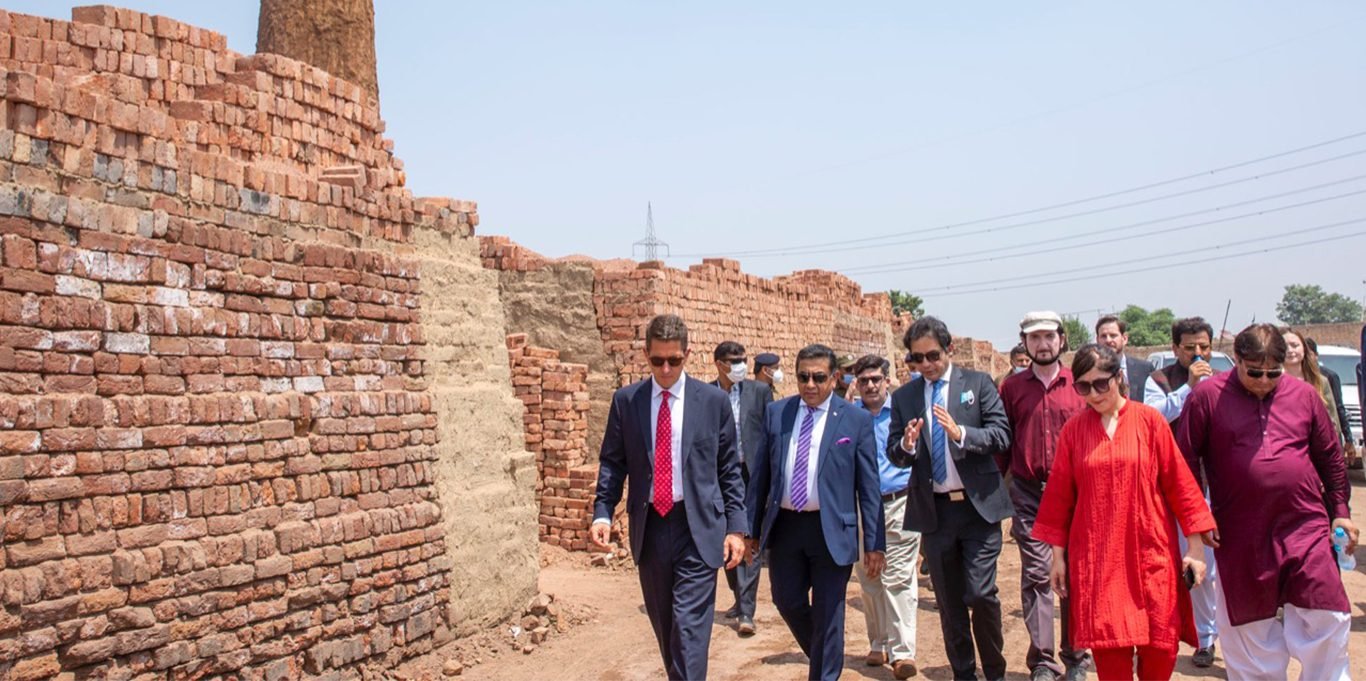Editorial
Children working in brick kilns in Pakistan are among the country’s most vulnerable and exploited workers. They are subjected to harsh and hazardous conditions, low wages, debt bondage, lack of education, health problems and human rights violations. According to the International Labour Organization (ILO), Pakistan has ratified the Convention on the Rights of the Child (CRC) and the Minimum Age Convention (C138), which prohibit child labour and set the minimum age for admission to employment at 15 years. However, Pakistan has not ratified the Worst Forms of Child Labour Convention (C182), which defines and prohibits the most harmful forms of child labour, such as slavery, trafficking, forced labour, debt bondage, hazardous work and involvement in armed conflict. Moreover, Pakistan’s domestic laws are inconsistent and inadequate in addressing child labour issues.
For example, the Employment of Children Act 1991 bans child labour in certain occupations and processes but excludes brick kilns from its list. The Bonded Labour System (Abolition) Act 1992 abolishes bonded labour and prohibits the peshgi (advance payment) system but does not explicitly mention children or brick kilns. The Punjab Prohibition of Child Labour at Brick Kilns Act 2016 prohibits child labour at brick kilns in Punjab province but allows children above 14 years to work as apprentices with parental consent. The Sindh Prohibition of Employment of Children Act 2017 prohibits child labour in all sectors of Sindh province but does not specify any penalties for violators.
The legal loopholes and weak enforcement of existing laws allow the brick kiln owners to exploit children and their families through debt bondage. According to a report by the Solidarity Center, an estimated 4.5 million people work in brick kilns in Pakistan, most under forced or partly forced labour. The workers borrow money from the owners to meet their basic needs or cope with emergencies, such as illness, death or marriage. The owners charge exorbitant interest rates and manipulate the accounts to keep the workers indebted for generations. The workers are not allowed to leave the kiln or seek alternative employment until they repay their debt, which is virtually impossible. The owners also use violence, intimidation and threats to coerce the workers to work long hours without breaks or holidays.
The debt bondage system affects not only adult workers but also their children, who are forced to work on the kilns early to help their parents meet their production targets and reduce their debt. According to a survey by the Trust for Democratic Education and Accountability (TDEA), 72 per cent of brick kiln workers have children working with them on the kilns. The average age of these children is ten years, while some are as young as five years old. The children work up to 14 hours daily, making bricks, carrying heavy loads, mixing clay or feeding coal into the kilns. They are exposed to extreme heat, dust, smoke and toxic substances that cause respiratory infections, skin diseases, eye problems and injuries. They are also deprived of education, as only 12 per cent of them attend school regularly, while 62 per cent have never been enrolled in any formal or informal education program.
The lack of education and awareness among the brick kiln workers and their children is one of the main obstacles to improving their situation. The workers are often illiterate or have low levels of education, which makes them vulnerable to exploitation and unable to access their rights or seek legal remedies. The children need to be made aware of their rights or aspirations beyond the kilns. They cannot develop their skills or talents or participate in recreational or cultural activities. They are trapped in a cycle of poverty and dependency that limits their choices and chances for a better future.
However, there are also some signs of hope and change for the children working on brick kilns in Pakistan. Several civil society organizations, such as TDEA, Sangat Development Foundation (SDF) and Human Rights Commission of Pakistan (HRCP), have been working to raise awareness among the workers and their children about their rights and entitlements, such as minimum wage, social security, health care, education and identity cards. They have also been providing legal aid, advocacy and lobbying for policy reforms and enforcement of laws against child labor and bonded labor. They have also been supporting alternative livelihoods and income-generation activities for the workers and their families to reduce their dependence on debt bondage.
Moreover, some initiatives have been taken to promote clean brick production that adheres to decent work principles and provides better working conditions for the workers and their children. For example, TDEA has developed a Decent Work Brick Kiln Framework (DWBKF) that defines the standards and indicators for clean bricks, such as fair wages, social protection, occupational health and safety, environmental sustainability and elimination of child labor and bonded labor. TDEA has also established a certification system for clean bricks and a consumer awareness campaign to create demand for them in the market.
Concludingly, children working in brick kilns in Pakistan face multiple challenges and violations of their rights due to legal gaps, debt bondage, hazardous work and lack of education. However, there are also some opportunities and efforts to improve their situation through awareness raising, legal aid, policy advocacy, alternative livelihoods and clean brick production. These efforts need to be scaled up and supported by the government, the private sector, civil society and the international community to ensure that the children working in brick kilns in Pakistan can enjoy their rights and dignity and have a brighter future.
Pl subscribe the English/Urdu magazines of republicpolicy.com
















